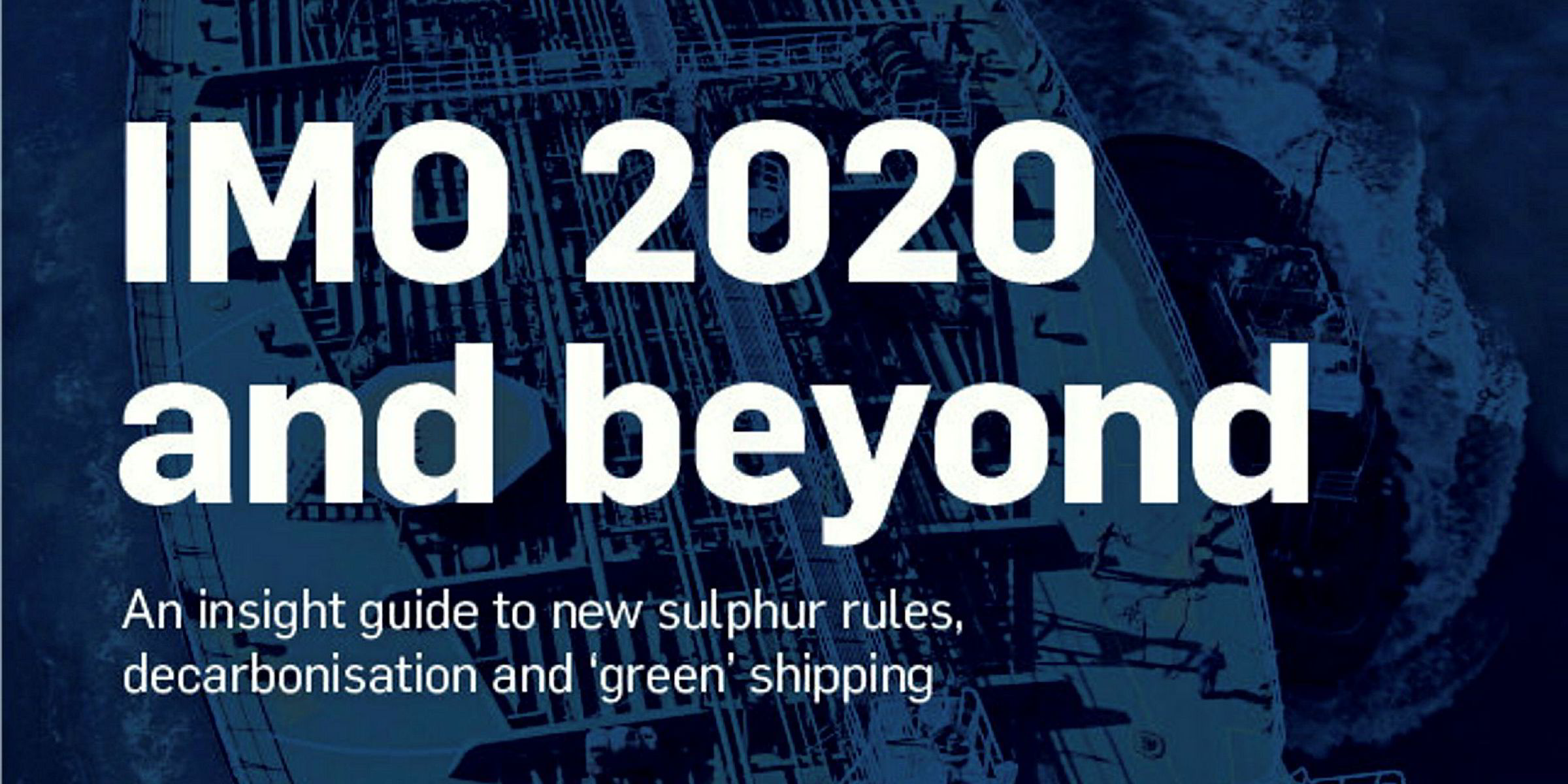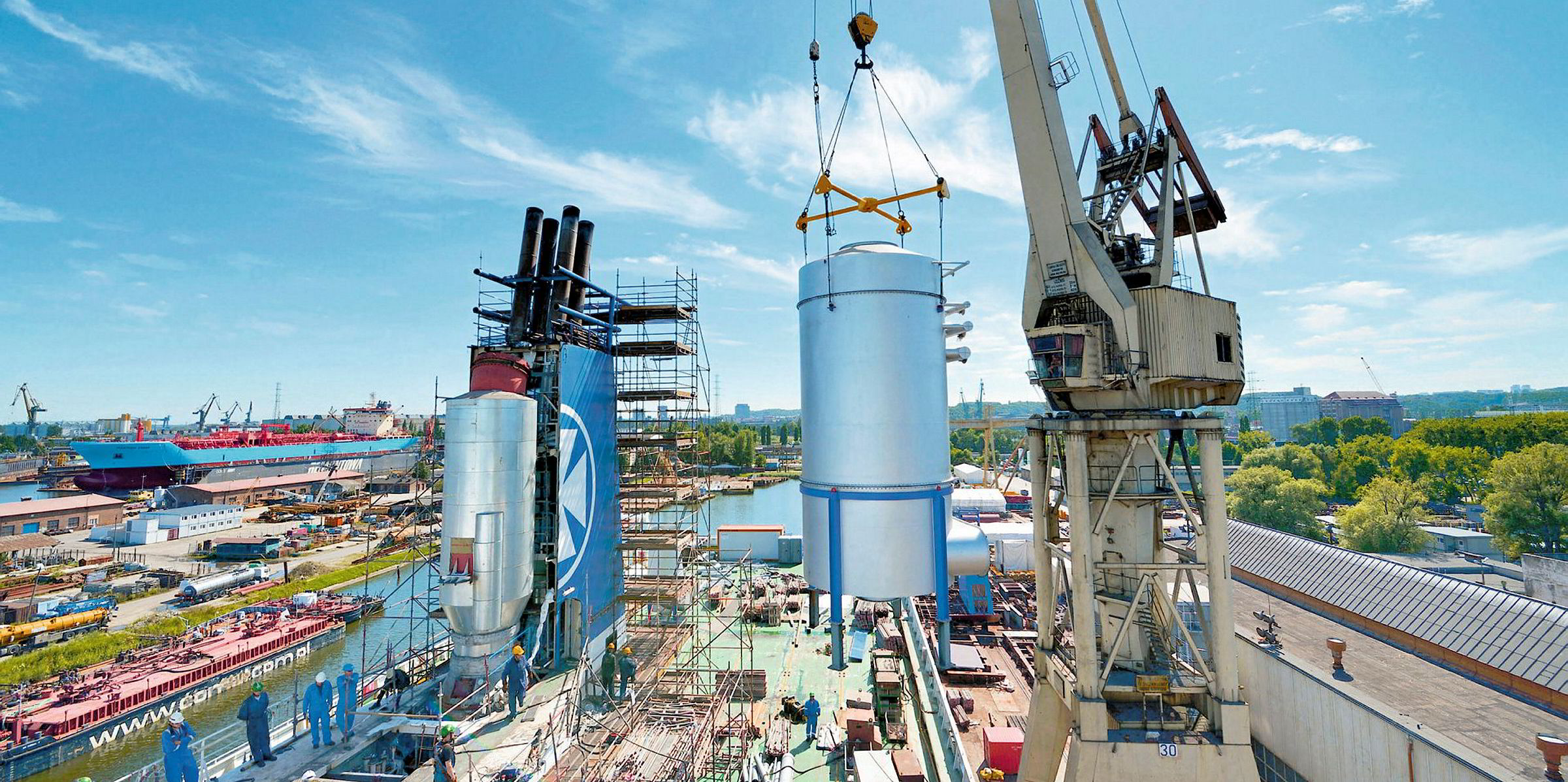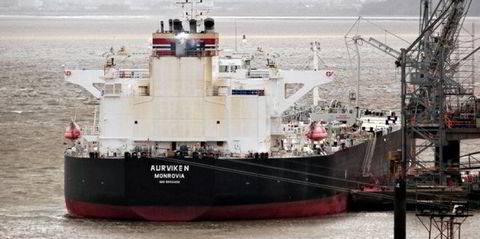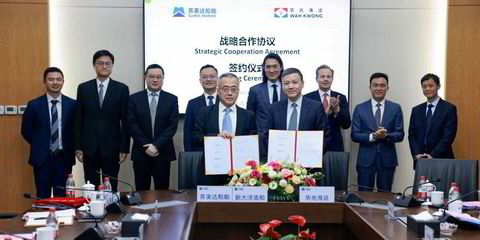Small companies tend to reject scrubber technology as an option to meet the IMO 2020 regulations compared with mid- and large-sized firms, according to a TradeWinds Knowledge survey.
When asked to choose at least one preferred option for IMO 2020, only 12% of the respondents whose companies have up to 10 employees pick the exhaust gas cleaning technology.
In comparison, 26.7% of the respondents from companies with 11-50 people and 24.7% from companies with more than 50 headcounts are fond of scrubbers.
The survey received hundreds of responses from shipowners, charterers, brokers and other segments and its full results were published in the TradeWinds Knowledge report on IMO 2020 and beyond.
Based on the IMO rules, vessels installed with scrubbers onboard will be allowed to continue consumption of the cheaper high-sulphur fuel oil (HSFO) while others need to switch to new blends of 0.5%-sulphur fuel, marine gasoil (MGO), LPG, LNG or other alternative fuels with negligible sulphur contents.

Check out TradeWinds Knowledge http://bit.ly/35g4KZ1, our new research project on IMO 2020 and decarbonisation
Industry experts have generally considered the investment case for scrubbers would be stronger for larger vessels, whose overall fuel consumption is higher.
But scrubber installations for bigger ships would require more upfront capital investments, according to TradeWinds Knowledge. These may not be always affordable for small firms.
Regardless of company sizes, new blends of 0.5%-sulphur fuel are the most popular option among the respondents while MGO came a close second. Roughly 48% to 60% of the respondents in each company group support those two options.
LNG is backed by 33.8% from large firms, 31.3% of those from small firms, and 24.4% from mid-sized firms.
Big firms feel confident in themselves
Meanwhile, the respondents from large companies are more confident in their preparation for IMO 2020.
Of them, 23.6% feel very well prepared, 36.5% feel mostly prepared, and 26.6% adequately prepared. Only 8.4% think they are little prepared and 1.9% unprepared.
As for those from mid-sized companies, 75.6% say they are at least adequately prepared, 12.2% little prepared and 5.6% unprepared.
Of the respondents from small firms, 24.4% are very well prepared, 18.3% mostly prepared, and 32.9% adequately prepared. 13.4% are either little prepared or unprepared.
The survey participants were less confident in how the industry is preparing for the regulatory change in general.
Of those from large companies, 55.9% reckon the industry is at least adequately prepared, 36.1% feel it is little prepared, and 6.5% unprepared.
Half of the respondents from mid-sized companies think the industry is at least adequately prepared, but 48.9% reckon it is either little prepared or unprepared.
As for those from small firms, 41.5% say industry participants are at least adequately prepared, 46.3% say little prepared and 7.3% unprepared.
Worries over fuel bills
Money is the top concern among survey participants when it comes to IMO 2020 regardless of company size.
When asked about the biggest challenge in meeting the regulatory requirement, 32.5% of the respondents from big companies cite compliance costs, as well as 35.3% from mid-sized firms and 35.8% from small firms.
“IMO-compliant fuels are expected to be more expensive than HSFO, and scrubber installation requires time and money,” TradeWinds Knowledge said.
Among other options, logistics constraints are cited as the biggest worry by 27% from big companies, 22.4% from mid-sized firms, and 29.6% from small firms.
Technology readiness and availability worry 27.8% from big companies, 29.4% from mid-sized firms, and 23.5% from small firms the most.
Roughly 11% to 13% of the respondents in each company group suggest regulatory uncertainty is the biggest challenge.
Download a sample TradeWinds Knowledge report via http://bit.ly/35g4KZ1
The survey on IMO 2020 and decarbonisation was conducted between 15 July and 6 August 2019 and we received 603 responses.
Of them, 44.1% described their companies as shipowners, 24% as shipmanagers, 20.4% as shipbrokers, 16.8% as charterers and 15% as financiers. There were also some describing themselves as working for consultancies, bunker players and insurance firms, among others.
The questionnaire was created via an electronic form provided by SurveyMonkey. It consisted of 20 questions — one was on survey data compliance, and the rest were multiple-choice questions on the respondent’s attitudes and approaches towards environmental regulations, and profile questions. Respondents answered anonymously and were allowed to skip the questions they did not want to answer.
Special thanks to Dr Nishatabbas Rehmatulla, senior research associate at the University College London Energy Institute, who provided advice on the design of the survey.






